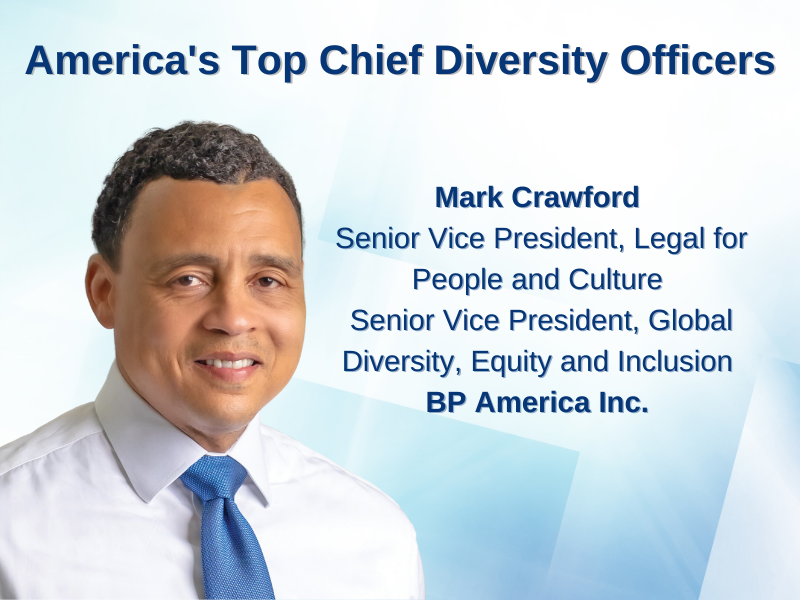Q: Can you tell us a
little about yourself and your role at your company?
A: I have practiced labor
and employment law exclusively for more than 25 years, starting my career with
one of the largest labor and employment boutique law firms in the U.S. Over my
more than 20-year career with bp, I’ve provided legal support to bp’s
operations in the Americas and across the world. Today, I hold two roles with
the company: senior vice president of legal for people and culture and senior
vice president of global diversity, equity and inclusion or DEI.
In the DEI role, I am
responsible for setting and overseeing bp’s strategy on DEI globally, including
both workforce diversity and supplier diversity.
Q: Why is diversity,
equity and inclusion important to your company?
A: The past few years have
been transformational for bp. We set a new direction and purpose for our
company which includes a set of aims to get to net zero [carbon emissions by
2050], improve people’s lives and care for the planet.
One of those aims is
focused on greater equity. We want our workforce and customers to experience
fair treatment according to everyone’s different needs and situations, while
helping our partners and suppliers do the same. The success of our strategy is
directly tied to our ability to attract and retain the best talent the world
has to offer, and we understand the best talent isn’t confined to a single
demographic but represents the full breadth of diversity. We believe that this
[policy] not only gives us a competitive advantage, but that we have a
responsibility as a corporation to lead by example in this space.
Q: How has your company’s
DEI strategy evolved over the past couple of years as the spotlight has been
put on the country’s lingering racial inequality and social injustice
issues?
A: The murders of George
Floyd, Breanna Taylor and Ahmaud Arbery caused many companies to pause and
reflect. At bp, we spent time listening and caring for each other, while asking
ourselves how we could create an inclusive culture where equitable outcomes are
expected. We developed our Global Framework for Action, which guides how we
advance in our regions and global business.
The governance is built
around three pillars: transparency, accountability and talent. Simply put, we
are doing DEI differently, allowing data to drive how we advance. We’ve also
highlighted DEI as one of our global priorities, with ambitions for women,
ethnic minorities and diverse suppliers.
Q: What area of DEI is
still a challenge despite increased visibility and acceptance?
A: Despite increased
visibility, the equity piece is still a very real challenge. It isn’t a
zero-sum game. It doesn’t mean take from some to give to others. Equity is
about giving each person what they need to compete based on their own unique
needs. When key decision-makers better understand the importance of equity and
how to act on it, we will be better positioned to make the progress needed for
a better world.
Q: How does supplier
diversity and minority business development fit into your company’s DEI
strategy?
A: Our focus on greater
equity includes increasing our spend with diverse suppliers. It is a pillar of
our global priorities. Specifically, in 2020 we set a goal to double our spend
by 2023. I am excited to share that we’ve accomplished our goal.
However, we are not
stopping there. We are taking diverse suppliers through a developmental
program, equipping them with tools to compete for opportunities with bp. Senior
leaders have an established road map on how to increase diverse supplier spend
within their remit.
Q: What is the next step
change in DEI, and why is it important to reach that level?
A: We must get after the
core issues plaguing underrepresented and under resourced populations which are
creating the inequities we see today. Everyone in society deserves a fair
chance — wherever they start from in life. Additionally, as we seek to
transform our company and the industry, we need to engage the full breadth of
talent the world has to offer.
Recently, bp donated $4.05
million to three historically Black universities [Florida A&M University,
North Carolina A&T University and Prairie View A&M University] to
develop fellowships where students will receive scholarships, mentorship and
early exposure to the workforce. We are creating a legacy we can be proud of
for future generations.
To learn more about BP,
visit BP.COM.





